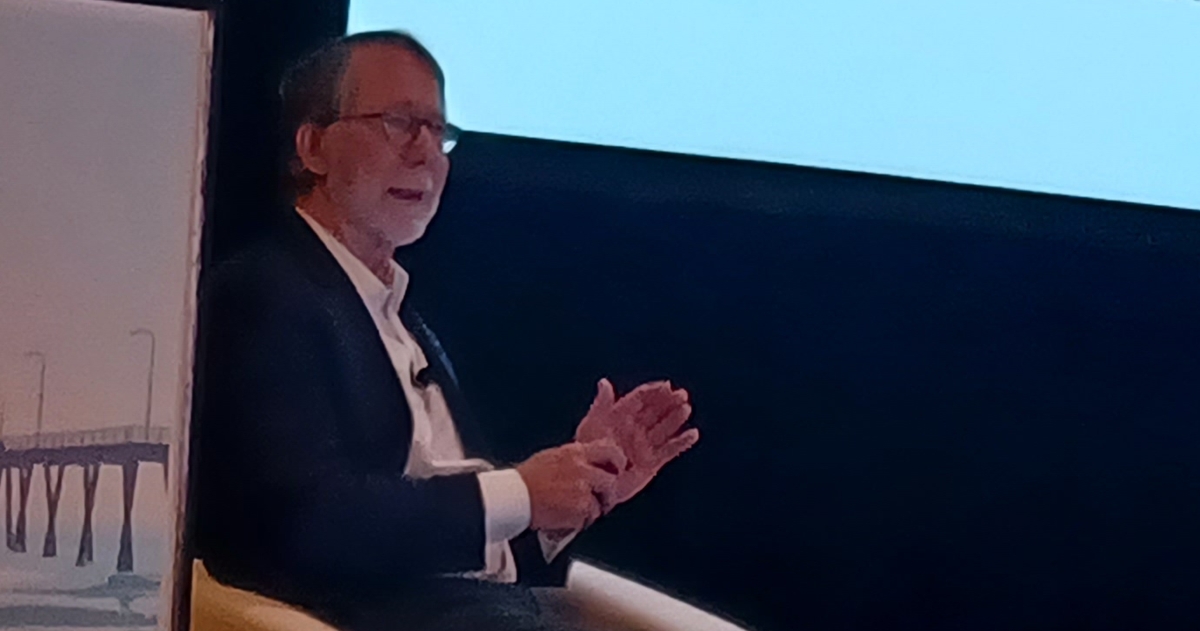September 24, 2025
4 min read
Key takeaways:
- Standing up for a value often takes moral courage. Moral courage is a not only a teachable skill; it is contagious, a speaker said.
- A moral courage support system can help foster confidence.
Moral courage is the strength to speak up even when doing so may have negative consequences. This is vital skill in health care that leads to better organizational culture and better patient outcomes.
Fortunately, according to Lauren Weber, MD, FACC, CEC, co-founder and lead of strategy for All Levels Leadership, moral courage is a skill that can be developed.

At the Power of Women In Medicine Summit, Weber highlighted the importance of and how to cultivate moral courage among women in medicine. Healio spoke with Weber, who is also a cardiologist at Confluence Health in Wenatchee, Washington, about moral courage, engaging in “constructive confrontation” and barriers faced by women in medicine.
Healio: What is constructive confrontation?
Weber: Constructive confrontation is centered on how to challenge effectively. My presentation focuses on how to recognize when you’re in a situation that may require moral courage and how to practice the skills to confront the situation effectively and confidently.
This is a topic that really resonates with people, because we often find ourselves in situations where there is a value at stake but we’re not sure how to be good advocates. If we feel like we need to say something, how do we arm ourselves with the tools that can make a challenge meaningful?
Healio: Could you provide an example of a situation handled with constructive confrontation?
Weber: I like to use the familiar example of the advanced cardiovascular life support code.
This is a situation where we are trained to be comfortable practicing moral courage.
Anyone on the code team should feel empowered and indeed obligated to speak up if the American Heart Association Advanced Cardiovascular Life Support algorithm is not followed correctly — say, if the wrong medication was about to be administered. In a scenario like this, that requires immediate intervention. We talk about using the “two-challenge rule.” You challenge once: “Are you sure you want to give that medication?” If it doesn’t work, you challenge twice: “I think that’s the wrong medication. Let’s pause and look it up.” And if your challenge is unsuccessful, you escalate and find allies to prevent patient harm. In situations that don’t require immediate intervention, we have time to get ourselves prepared for a difficult conversation that helps us align with our colleagues but still voice the threat to our values.
Healio: What should readers take away about moral courage and constructive criticism?
Weber: At All Levels Leadership we like to say that “moral courage is contagious.” We want people to practice these skills, but also then demonstrate them for others. By modeling the behavior, we lower the inertia for others to be able to practice moral courage as well.
It is also important to be able to identify a situation where you might need to have moral courage. This is when you have a value at stake, when there’s a danger to speak or stand up, but you feel compelled to stand up anyway. The last piece, what Rushworth Kidder calls the willingness to endure, is the hardest part. How do we get to a place where we can endure and stand up for what we believe in? This is where constructive confrontation comes in, in that there are skills you can practice, some of which are familiar to us already, like the two-challenge rule, that will make it easier for you to challenge in a high-stakes situation.
Healio: What are some ways to foster confidence among women in medicine?
Weber: With our clients, we like to talk about building a moral courage support system. This is a combination of trusted advisors, a peer network, maybe some knowledge sources and then wellness practices. Think about this in terms of: What are the things that keep you grounded and motivated in these situations?
I also like to encourage people to find moral courage survivors. These are folks who have had to challenge — maybe it went well or maybe it didn’t go well. Maybe they needed to walk away from the situation that they were in. Moral courage survivors are a wealth of experiential knowledge. Having advisors in the peer network to practice communication techniques in low-stakes environments can help.
Healio: What are currently some of the greatest barriers to building confidence among women in medicine?
Weber: There are many barriers. For women, and maybe for everybody in medicine, there are many biases that we need to overcome. There are institutional and structural biases that come along with who is listened to and who is at the table for some of these situations being discussed.
Women are told often that they are not good at confrontation, or that women are too empathetic or emotional. In reality, those soft skills translate very well into being able to have a difficult conversation.
Medicine, by its nature, is very much a hierarchical structure. We value ourselves on being right, and if you are going to stand up against something, you are inherently telling somebody that they are wrong. It is a very uncomfortable place to be in medicine, and those are some of the real barriers that we worry about and struggle with.
Healio: What is your take-home message?
Weber: I would encourage anyone that if they are in a situation where they feel like they are struggling to figure out how to stand up for something that means something to them that there is a skill set out there to help people do it. Moral courage is a skill that everyone, especially women in medicine, can and should develop. Practice. Find something that you believe in, even if it seems small, prepare your points, and speak up when necessary. Repeating this process will eventually make constructive confrontation feel natural, and you will be seen as a leader.
For more information:
Lauren Weber, MD, FACC, CEC, can be reached at lauren@alllevelsleadership.com or on LinkedIn: www.linkedin.com/in/lauren-weber-healthcare-teacher-mentor-coach.









